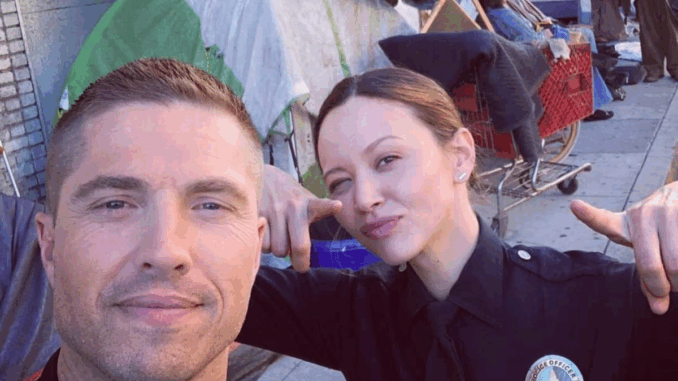
When The Rookie first premiered in 2018, it seemed like a straightforward procedural: a man in his 40s becomes a cop, providing a fresh twist on the coming-of-age police narrative. But what started as a charming oddball drama has quietly evolved into one of the most morally complex shows on network television.
At the heart of the story is John Nolan (played by Nathan Fillion), a rookie officer who joins the LAPD after a midlife crisis. He’s earnest, idealistic, and sometimes naïve—but what makes The Rookie stand out isn’t Nolan’s age or charm. It’s the world he steps into: a morally murky version of law enforcement where justice is rarely clear-cut, and every decision carries weight.
🕵️♂️ From Black and White to Shades of Gray
The Rookie shines in its willingness to move beyond the typical good-vs-evil narrative. Each episode challenges its characters—and viewers—to wrestle with the gray areas. Whether it’s a split-second decision during a domestic dispute, a conflict between police procedure and personal ethics, or the question of when to speak out against your own department, the show consistently avoids easy answers.
Detective Nyla Harper (Mekia Cox), for instance, embodies the tension between doing what’s right and surviving in a broken system. A former undercover cop, Harper brings trauma, insight, and cynicism to her role, constantly challenging the idealism of others. Her character arcs dig into deeper systemic issues—racism, institutional pressure, and the emotional toll of the job.
🧨 Controversy and Courage
While many network cop dramas have faced criticism for glorifying policing, The Rookie has made a conscious effort to evolve—especially in a post-2020 media landscape. Episodes have tackled police reform, mental health, racial profiling, and abuse of power, often head-on. Some fans have accused the show of being “too political,” while others commend it for not shying away from uncomfortable truths.
In Season 3, a storyline involving Officer Jackson West (Titus Makin Jr.) and a corrupt training officer served as a critical turning point. The series addressed not only internal misconduct but the difficulty of speaking up in a system built on loyalty and silence. For a mainstream network show, that kind of storytelling takes guts.
👥 Flawed Characters, Real Stakes
The Rookie doesn’t offer us heroes in capes—it gives us flawed people trying to do good in a deeply flawed system. Officer Lucy Chen (Melissa O’Neil) and Sergeant Tim Bradford (Eric Winter) have become fan favorites, not just because of their chemistry, but because their dynamic highlights different philosophies on power, trust, and vulnerability.
Whether it’s Chen confronting trauma or Bradford grappling with toxic masculinity, their arcs reflect the emotional depth that defines the series. Even John Nolan, once the symbol of optimism, finds himself tested by ethical dilemmas that question his place in the system he chose to join.
🎯 A Network Drama That Dares to Think
At a time when trust in law enforcement is under scrutiny, The Rookie stands out not for pretending to have all the answers—but for daring to ask the right questions.
In a world flooded with content, it’s easy to dismiss police procedurals as formulaic. But The Rookie is something different: a show that acknowledges the weight of the badge, the imperfections of those who wear it, and the complex reality of the world they serve.
When the badge meets the real world, justice isn’t about being right—it’s about doing right, even when it’s hard. And The Rookie proves that sometimes, the most radical thing a TV show can do is simply tell the truth.
